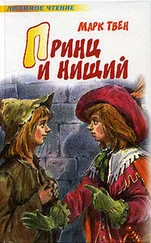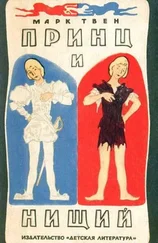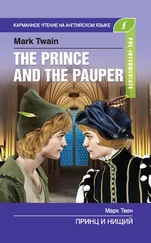tedious [`tı:dıəs], grind [graınd], picturesque [pıktʃə`resk]
When breakfast was over, the housewife told the king to wash up the dishes. This command was a staggerer for a moment, and the king came near rebelling; but then he said to himself, 'Alfred the Great watched the cakes; doubtless he would have washed the dishes, too — therefore will I essay it.'
He made a sufficiently poor job of it; and to his surprise, too, for the cleaning of wooden spoons and trenchers had seemed an easy thing to do. It was a tedious and troublesome piece of work, but he finished it at last. He was becoming impatient to get away on his journey now; however he was not to lose this thrifty dame's society so easily. She furnished him some little odds and ends of employment, which he got through with after a fair fashion and with some credit. Then she set him and the little girls to paring some winter apples; but he was so awkward at this service that she retired him from it and gave him a butcher-knife to grind. Afterward she kept him carding wool until he began to think he had laid the good King Alfred about far enough in the shade for the present, in the matter of showy menial heroisms that would read picturesquely in story-books and histories, and so he was half minded to resign. And when, just after the noonday dinner, the goodwife gave him a basket of kittens to drown, he did resign. At least he was just going to resign — for he felt that he must draw the line somewhere, and it seemed to him that to draw it at kitten-drowning was about the right thing — when there was an interruption. The interruption was John Canty- with a peddler's pack on his back — and Hugo!
The king discovered these rascals approaching the front gate before they had had a chance to see him; so he said nothing about drawing the line, but took up his basket of kittens and stepped quietly out the back way, without a word. He left the creatures in an outhouse, and hurried on into a narrow lane at the rear.
CHAPTER XX (Глава двадцатая)
The Prince and the Hermit (Принц и отшельник)
THE high hedge hid him from the house now (высокая изгородь скрывала его от дома теперь; to hide — прятать); and so (и вот), under the impulse of a deadly fright (под импульсом/побуждением смертельного страха = подгоняемый смертельным стахом), he let out all his forces (он выпустил наружу все свои силы; to let — пускать, позволять) and sped toward a wood (и поспешил к лесу; to speed — спешить) in the distance (в отдалении). He never looked back (он никогда не смотрел назад = так и не оглянулся ни разу) until he had almost gained the shelter of the forest (пока он почти не достиг укрытия леса); then he turned and descried two figures in the distance (затем он обернулся и рассмотрел две фигуры в отдалении; to descry — рассмотреть, разглядеть, завидеть издалека). That was sufficient (это было достаточно); he did not wait to scan them critically (он не ждал, чтобы рассмотреть их критически = придирчиво, внимательно), but hurried on (но поспешил дальше), and never abated his pace (и ни разу не сбавил шага) till he was far within the twilight depths of the wood (пока он не оказался далеко в сумеречных глубинах леса). Then he stopped (тогда он остановился); being persuaded (будучи убежденным) that he was now tolerably safe (что он был теперь относительно в безопасности; tolerably — терпимо, сносно). He listened intently (он прислушался напряженно), but the stillness was profound and solemn (но тишина была глубокой и торжественной) — awful, even (величественной даже), and depressing to the spirits (и подавляющей для настроения = угнетающей). At wide intervals (через широкие промежутки времени) his straining ear (его напряженное ухо; to strain — напрягать(ся)) did detect sounds (отмечало звуки), but they were so remote (но они были такими отдаленными), and hollow, and mysterious (и глухими, и таинственными), that they seemed not to be real sounds (что они, казалось, не были настоящими звуками: «они казались не быть…»), but only the moaning and complaining ghosts of departed ones (но только стенающими и жалобными призраками былых; to depart — уходить). So the sounds were yet more dreary (так что эти звуки были еще более тоскливыми) than the silence which they interrupted (чем тишина, которую они нарушали).
It was his purpose (это было его намерением), in the beginning (в начале), to stay where he was (пробыть, где он находился), the rest of the day (остаток дня); but a chill soon invaded his perspiring body (но холод скоро вошел в его вспотевшее тело), and he was at last obliged (и он был наконец вынужден) to resume movement (возобновить движение) in order to get warm (с тем чтобы согреться: «сделаться теплым»). He struck straight through the forest (он направился напрямую через лес; to strike — бить; направляться), hoping to pierce to a road presently (надеясь пробиться к дороге вскоре; to pierce — пронзать), but he was disappointed in this (но он был разочарован в этом = безуспешно). He traveled on and on (он продвигался дальше и дальше); but the farther he went (но чем дальше он шел; to go — идти), the denser the wood became (тем гуще становился лес; to become — становиться; dense), apparently (очевидно = как казалось). The gloom began to thicken, by and by (мрак начал сгущаться вскоре), and the king realized (и король осознал) that the night was coming on (что ночь приближалась). It made him shudder (это заставило его вздрогнуть) to think of spending it (подумать о том чтобы провести ее = ночь) in such an uncanny place (в таком жутком месте); so he tried to hurry faster (так что он старался поспешать быстрее), but he only made the less speed (но он лишь сделал меньше скорость = двигался медленнее), for he could not now see well enough (так как он не мог теперь видеть достаточно хорошо) to choose his steps judiciously (чтобы выбирать свои шаги благоразумно); consequently he kept tripping over roots and tangling himself in vines and briers (следовательно, он и то и дело спотыкался о корни, запутывался во вьющихся стеблях и терновнике).
Читать дальше
Конец ознакомительного отрывка
Купить книгу




![Марк Твен - Принц и нищий [Издание 1941 г.]](/books/148799/mark-tven-princ-i-nichij-izdanie-1941-g-thumb.webp)







